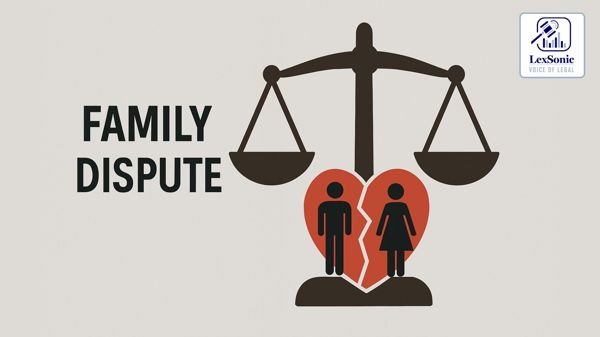In a recent case, the Delhi High Court dismissed a petition filed under Section 482 of the Code of Criminal Procedure (CrPC) seeking the quashing of a First Information Report (FIR) registered under Sections 498A, 406, and 323 of the Indian Penal Code (IPC). The petitioner's request for quashing the FIR was based on an alleged settlement between the parties, but the court determined that the matter required further judicial scrutiny, as the allegations of continued cruelty by the respondent persisted.
Background of the Case:
The case revolves around a matrimonial dispute between the petitioner and the respondent, who were married in 2012. The respondent filed a complaint in 2015 alleging physical and mental harassment by the petitioner and his family, leading to the registration of the FIR under sections related to dowry harassment, criminal breach of trust, and causing hurt.
In 2016, a Memorandum of Understanding (MOU) was signed between the parties in which they agreed to settle their differences. As part of the settlement, the respondent withdrew her complaint, and the couple resumed living together, even conceiving a child. However, despite the resolution of the dispute in 2016, tensions resurfaced, and by 2022, the court took cognizance of the matter, leading to the filing of the criminal case against the petitioner.
Petitioner's Argument:
The petitioner contended that the FIR should be quashed due to the earlier settlement between the parties, wherein the respondent had agreed to withdraw all legal proceedings in exchange for a financial settlement of Rs. 45 lakh. The petitioner argued that since the dispute had been amicably resolved, the FIR was baseless, and continuing with the case would cause undue harassment to him and his family members.
Respondent's Opposition:
In contrast, the respondent opposed the quashing of the FIR, emphasizing that despite the settlement, she continued to face physical and mental abuse from the petitioner and his family. The respondent claimed that after returning to the marital home, the petitioner resumed his abusive behavior, prompting her to leave once again and return to her parental home. The respondent also alleged that the petitioner had taken the money agreed upon in the settlement and further misappropriated her personal earnings from a boutique she operated.
Court’s Analysis and Decision:
The court carefully considered the material presented by both parties. While the petitioner highlighted the MOU and the financial settlement, the respondent's allegations of continued abuse, supported by medical records and police reports, were given substantial weight. The court acknowledged that despite the settlement, the respondent had faced serious physical and mental suffering, with allegations of ongoing cruelty by the petitioner.
The court referred to precedents in which criminal cases arising from family disputes were quashed when the parties had reached a compromise. However, it also noted that the decision to quash an FIR should not be made lightly, especially when serious allegations of criminal offenses, such as those related to matrimonial cruelty, were involved.
The court also cited judgments from the Supreme Court, including Gian Singh v. State of Punjab (2012) and Daxaben v. State of Gujarat (2022), which stressed the importance of ensuring that settlements do not absolve individuals from criminal liability in cases involving grave offenses.
In this case, the court found that the petitioner's conduct had not abided by the terms of the settlement, and the cause of action for the FIR still persisted. Despite the petitioner’s claim of settlement, the respondent had provided credible evidence of continued abuse, and the conditions for quashing the FIR were not met.
Conclusion:
Ultimately, the High Court dismissed the petition and allowed the criminal trial to proceed, reinforcing the principle that settlements in matrimonial disputes should not be used as a shield against serious criminal charges. The court emphasized that the inherent powers under Section 482 CrPC should be exercised cautiously, especially in cases involving allegations of abuse and cruelty, where the victim’s well-being and justice are at stake.
The decision highlights the importance of upholding the integrity of legal processes in family disputes, ensuring that victims of matrimonial cruelty are not denied justice simply due to an unfulfilled settlement. The case serves as a reminder that criminal offenses, particularly those concerning domestic violence and harassment, must be addressed with due seriousness, even if the parties have made attempts to resolve their differences privately.
Section 482., Code of Criminal Procedure - 1973
Code of Criminal Procedure, 1973
Section 323., Indian Penal Code - 1860
Indian Penal Code, 1860

